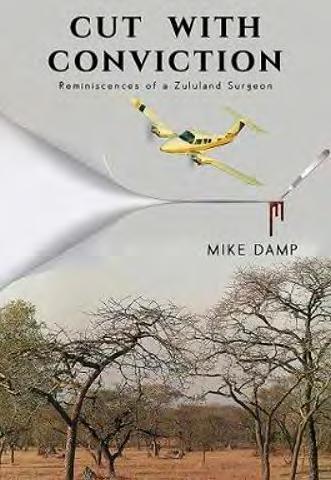
5 minute read
President’s perspective


Advertisement


















While we have entered a new year, it looks like the COVID-19 pandemic will be with us for a while longer. With border restrictions coming and going throughout December and January, I am sure it was a very different Christmas break for many and a strange, but increasingly familiar, way to start 2021. Last year I regularly wrote about how the College had been forced to adapt by implementing processes and different ways of working that may have taken several years, or even decades, to occur had the pandemic not hit. The challenge for us in 2021 will be to continue to integrate the lessons learned and use this experience to allow us to be as productive as we possibly can be and deliver excellent value to our membership. I ended 2020 by travelling to Canberra with the Royal Australasian College of Surgeons (RACS) CEO, John Biviano, and the General Manager – Fellowship Engagement, Etienne Scheepers. As well as meeting with Dr Brendan Murphy, the Secretary of the Australian Government Department of Health; Professor Paul Kelly, the Chief Medical Officer; Dr Nick Coatsworth, infectious disease physician; and other members of the Australian Government Department of Health leadership team, we met with the Hon Mark Coulton MP – Minister for Regional Health; the Hon Chris Bowen MP – Shadow Minister for Health; and others from the Professional Services Review Agency, the Australian Medical Association, the Private Hospitals Association and the Consumers Health Forum.
In all meetings we conveyed the view that, as Australia overcomes COVID-19 and looks to rebuilding, RACS is keen to take a more engaged role in working with government and other stakeholders to ensure the long-term sustainability of surgery in our healthcare system. Specific topics touched on during the visit included fee transparency and the government’s Medical Cost Finder website, telehealth, reforms to use of the title ‘surgeon’, elective surgery during the pandemic and reforms to the management of the Prosthesis List, among others. It was a productive visit with most displaying significant engagement in the issues, as well as interest in collaborating more closely with the College into 2021 and beyond. Another key topic in our Canberra discussions was rural health, and the recently released Rural Health Equity Strategic Action Plan. I would like to thank past and present members of the RACS Rural Surgery Section who led the development of this. The plan is focused
on building partnerships and raising awareness with our stakeholders to ensure there is inclusivity and a shared understanding of health equity for our rural, regional and remote communities. Later this year, the College will convene a forum to deliver a sustainable surgical service in Remote Central and Northern Australia (RCANS). The forum will devise strategies to implement a RCANS Training Network and a RCANS selection initiative for selecting junior doctors who are already living, working and committed to a remote area. I am also pleased to confirm that RACS will continue to support the New Fellows Rural Placement pilot in 2021, funded through the Federal Department of Health’s Specialist Training Program. Telehealth became an increasing area of focus throughout 2020, and will continue to be so this year for both rural and metropolitan surgeons. Given the potential for healthcare savings with equivalent safety outcomes and increased health equity, it is important that barriers to the implementation and use of telehealth services are investigated. The College recently commissioned a report to investigate the factors that either prohibit or encourage the implementation and use of telehealth, and to examine patient and provider perceptions of telehealth services. The results of this review provide additional evidence to support the results of the telehealth surveys that we conducted last year, and will be used to guide RACS’ advocacy. The report is available on the RACS website.
We also consulted with the Medical Council of New Zealand on telehealth, unprofessional behaviour, ending a doctor–patient relationship and revised accreditation standards. In addition to other efforts in New Zealand, we advocated through the Ministry of Health for a change to resident medical officer rotation dates (from pre-Christmas to JanuaryFebruary). The change was agreed to by all District Health Boards and relevant unions and will be implemented in early 2021. This will be a key year for the future direction of our College in many ways. Following receipt of a proposal from the New Zealand National Board in February 2020, Council approved the establishment of the College Name Change Working Group to scope a College name change. This issue is one that will garner a diverse range of opinions and suggestions. The objective of the working group is to support balanced, informed deliberations regarding the College’s name, and will provide recommendations to Council about potential options and timelines for a member vote. Continuing Professional Development (CPD) is another area of the College that is set for an exciting transformation. The CPD team is working on a comprehensive program that is aligned with your scope of practice and supported by a streamlined and intuitive online platform. As we transition to the new program in July 2021, there will be a condensed CPD requirement from January to June 2021. The Board of Council meeting in January also accepted an independent review of the complaints process. This contained 21 recommendations that will support further change. Lastly, I am pleased to share a publication titled Unveiling the Collections with you. It was written by Geoff Down, the College curator, and Elizabeth Milford, our archivist. The book focuses on the many significant and unusual objects in the College collections.
I take this opportunity to wish you all a happy and prosperous 2021.
Mr Tony Sparnon President









